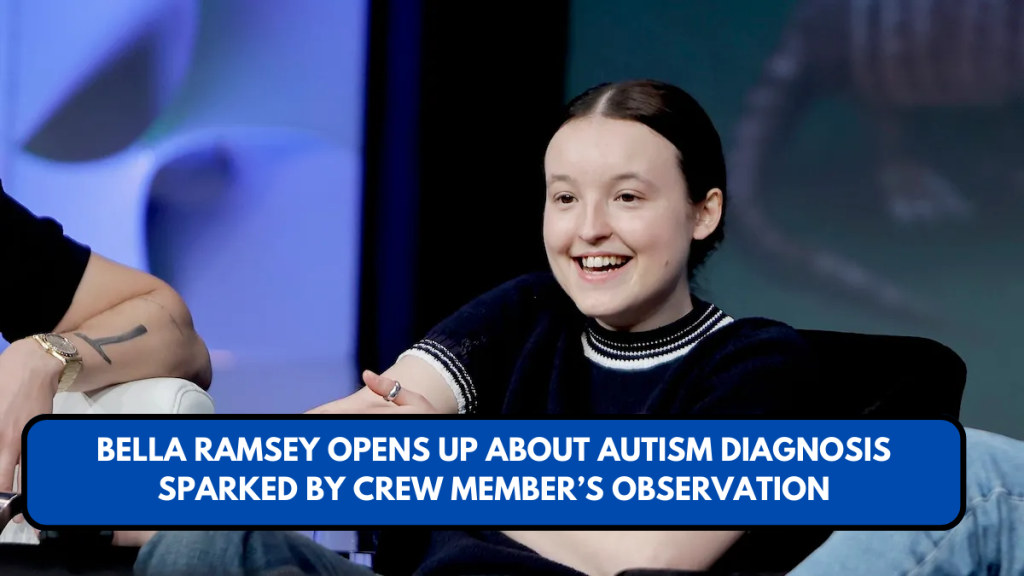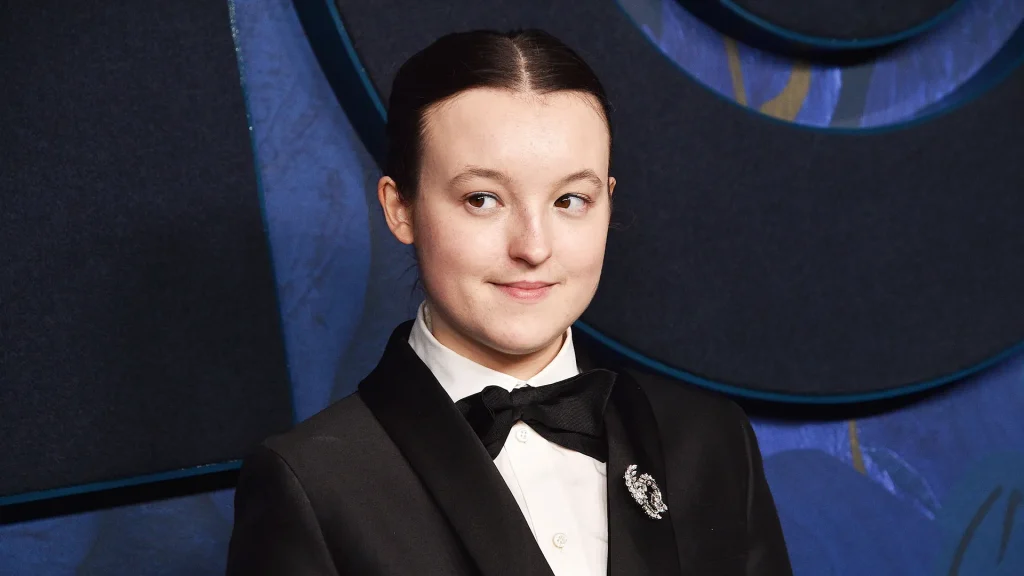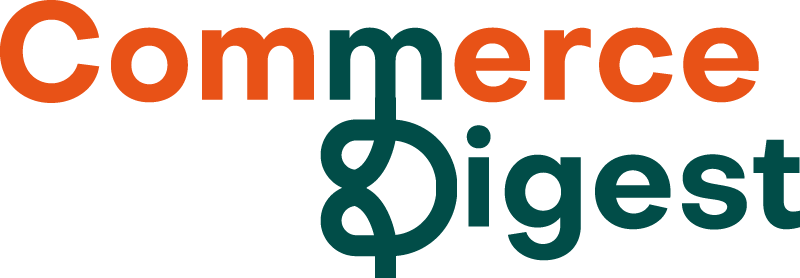
London, UK – Bella Ramsey, the rising British star best known for their standout roles in Game of Thrones and HBO’s The Last of Us, has opened up about receiving an autism diagnosis during the filming of the critically acclaimed series. In a candid interview with British Vogue, Ramsey revealed that a crew member noticed signs of autism and encouraged them to pursue a formal assessment.
The diagnosis, which came while filming season one of The Last of Us, brought clarity and validation to years of inner questioning and unique social experiences. For Ramsey, 21, the moment was both freeing and enlightening.
“It was the onset of The Last of Us, actually. Somebody on set who had an autistic daughter pulled me aside and said, ‘Have you ever thought you might be autistic?’ That was the first time it clicked,” Ramsey told British Vogue.
Read the full interview here.
A Lifelong Feeling of “Otherness”
Reflecting on their childhood, Ramsey described often feeling like a “weirdo” or a “loner.” Unlike many of their peers, they found comfort in the company of adults and struggled to relate to children their age. Ramsey recalled being particularly sensitive to light, noise, and social cues, often decoding micro-expressions and subtle body language as a coping mechanism.
These traits, they now understand, are linked to autism spectrum disorder (ASD)—a developmental condition that affects how people perceive the world and interact with others. Ramsey described their social interactions as being “manually learned,” something that inadvertently sharpened their acting skills.
“Everything has always felt like I’m doing a performance. But that’s what I do for a living, so in a way, it worked out.”
Autism Diagnosis as a Relief

Receiving the autism diagnosis was not a burden but a relief, Ramsey explained. Rather than viewing it as a limitation, they found the label empowering and insightful.
“Knowing I’m autistic is genuinely one of the best things that’s ever happened to me. It’s freeing,” they said.
Ramsey noted that the diagnosis helped them develop more compassion for themselves, particularly in areas where daily tasks can feel overwhelming or confusing. It also allowed them to “unmask” — a term used by many autistic individuals to describe shedding the socially constructed persona they use to blend in — and instead embrace their authentic self.
Honest About Labels and Identity
While Ramsey is open about their autism, they expressed discomfort with other labels, particularly around gender and sexuality.
“Gender and sexuality labels have always felt restrictive to me. But being autistic? That one feels useful — it helps me understand myself better.”
Ramsey’s openness contributes to a broader conversation about neurodiversity, particularly in the entertainment industry, where actors are often expected to conform to social norms and performance pressures.
Impact on Representation

Ramsey’s revelation has been met with support across social media and among neurodivergent fans, many of whom praised them for shedding light on autism in a respectful, honest manner. As more public figures speak out about neurodiversity, awareness and understanding continue to grow — and with them, the need for inclusive policies in workplaces and schools.
In the UK, support for individuals with autism is available through the NHS and government-backed initiatives such as the Autism Strategy for England and the Special Educational Needs and Disabilities (SEND) framework.
Parents and adults who suspect they or a loved one may be autistic can seek guidance through the NHS Autism Diagnosis Pathway or contact local support services listed on the National Autistic Society’s website.
What’s Next for Ramsey?
Ramsey is set to reprise their role as Ellie in the highly anticipated second season of The Last of Us, which premieres on April 13, 2025. Season one, based on the popular video game series, earned them critical acclaim and introduced their talent to a global audience.
As they continue to rise in Hollywood, Ramsey says they are committed to remaining transparent about who they are—both on and off screen.
“I don’t want to hide. If I tell people I’m autistic, I can unmask immediately. I can just be myself.”
In an industry where authenticity is often hard to come by, Ramsey’s honesty may just be the spark that inspires others to embrace their true selves — neurodivergent or not.



